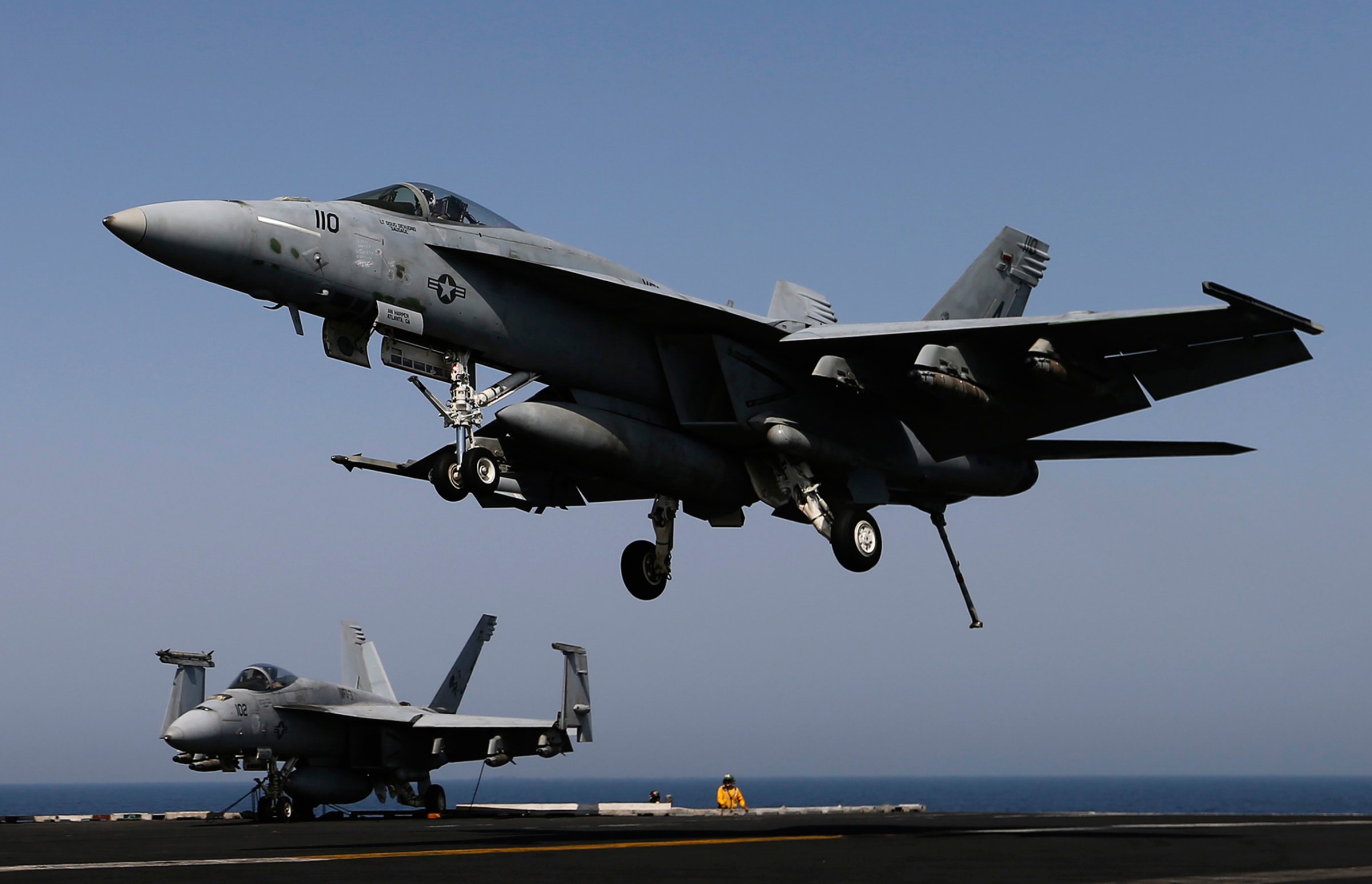
A U.S. air strike targeting a top militant leader in Libya on Sunday underscored the complex and ever shifting politics of Libya’s internal conflict that has created a haven for insurgents from elsewhere in the region.
The air strike early on Sunday targeted Mokhtar Belmokhtar, an Algerian man once regarded as one of the top militant leaders in North Africa. Libya’s internationally recognized government announced that Belmokhtar had been killed in the U.S. air strike near the Libyan city of Ajdabiya. The U.S. military confirmed Belmokhtar was the target but did not say whether he had died.
Belmokhtar took refuge in Libya, where state institutions have unraveled in the years following the 2011 revolution that toppled the regime of Muammar Gaddafi. The political disintegration of Libya created an opening for transnational jihadist groups including the Islamic State in Iraq and Greater Syria (ISIS), which found footholds in Libya after overrunning large parts of Iraq and Syria last year.
In the context of the power vacuum in Libya, ISIS and other groups have come to eclipse Belmokhtar and those loyal to him, who are best known for the 2013 attack on a gas field near In Amenas, Algeria, in which more than 100 people died. Capitalizing on a complex civil war between two rival governments, ISIS has established affiliates in each of Libya’s three regions.
“I think that his star in the broader jihadist galaxy of leaders and groups has faded,” said Imad Mesdoua, a political analyst with the consultancy Africa Matters in London. “He represents this group shift, the growing changes. The jihadist world is undergoing, in its depth, serious changes amongst themselves.”
The arc of Belmokhtar’s personal story maps onto a larger history of militancy in North Africa. Born in Algeria, he fought Soviet forces in Afghanistan, and returned to fight in in Algeria’s brutal civil war in the 1990s. He later moved to Mali where he became a fixture of a local insurgency. He funded his activities through hostage taking and cigarette smuggling and as a result earned the nickname Mr. Marlboro.
In spite of his notoriety (French intelligence once reportedly described him as uncatchable), Belmokhtar’s importance had already begun to wane in the lead-up to the attack on the In Amenas gas field. Prior to the attack, the leaders of al-Qaeda in the Islamic Maghreb (AQIM) wrote to him, scolding him as one might chide an intransigent employee. In the correspondence, discovered by the Associated Press in a house once used by the group, he is criticized for failing to file expenses and to make himself available for phone calls. Worst of all in his al-Qaeda superiors’ eyes, he had simply failed to deliver a major attack.
Belmokhtar split with AQIM, and the “spectacular” attack his bosses had hoped for came in the form of the siege on the gas field near In Amenas. “In Amenas was his claim to fame,” says Mesdoua. “It was his moment to shine in jihadist circles because he conducted a major operation.”
Belmohktar’s role in the murky and ever shifting undercurrents of the Libyan conflict is less clear. The U.S. airstrike targeting him comes at a moment of instability in Libya. In recent days, rival militias have attempted to push ISIS out of the eastern city of Derna, where the group first found local partners in Libya.
News reports indicated that the strike also targeted members of the Libyan Islamist group Ansar al-Sharia, which is aligned with al-Qaeda and recently has been positioning itself as a bulwark against ISIS, including in Derna.
“I think the message is being sent that Ansar al-Sharia will continue to be on a possible hit list. This is understandable. It’s also problematic because in other areas of Libya we’re seeing Ansar al-Sharia pitching itself as a bastion against ISIS,” said Claudia Gazzini, a senior analyst with International Crisis Group. “Bottom line, there is a risk of creating ripple effects. What these effects will be is still not clear,” she said.
“The U.S. air strike will definitely have some destabilizing effect within Libya,” said Mohamed Eljarh, a Libyan political analyst. “Some people will be using it within Libya in the wider political struggle. It is bad time for the political dialogue that is taking place,” he said, referring to the U.N.-mediated effort to broker a peace deal in the country.
More Must-Reads From TIME
- The 100 Most Influential People of 2024
- Coco Gauff Is Playing for Herself Now
- Scenes From Pro-Palestinian Encampments Across U.S. Universities
- 6 Compliments That Land Every Time
- If You're Dating Right Now , You're Brave: Column
- The AI That Could Heal a Divided Internet
- Fallout Is a Brilliant Model for the Future of Video Game Adaptations
- Want Weekly Recs on What to Watch, Read, and More? Sign Up for Worth Your Time
Contact us at letters@time.com